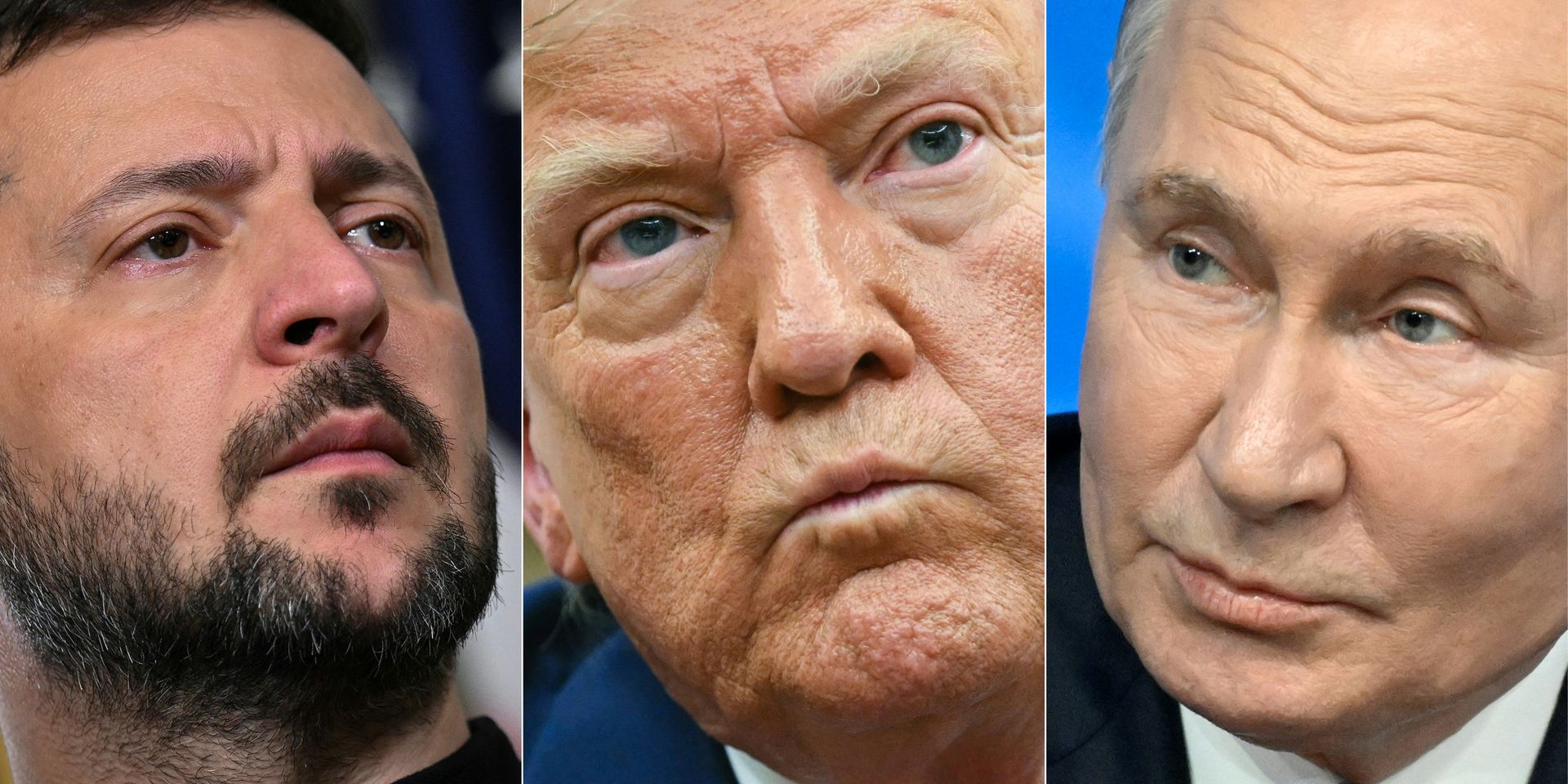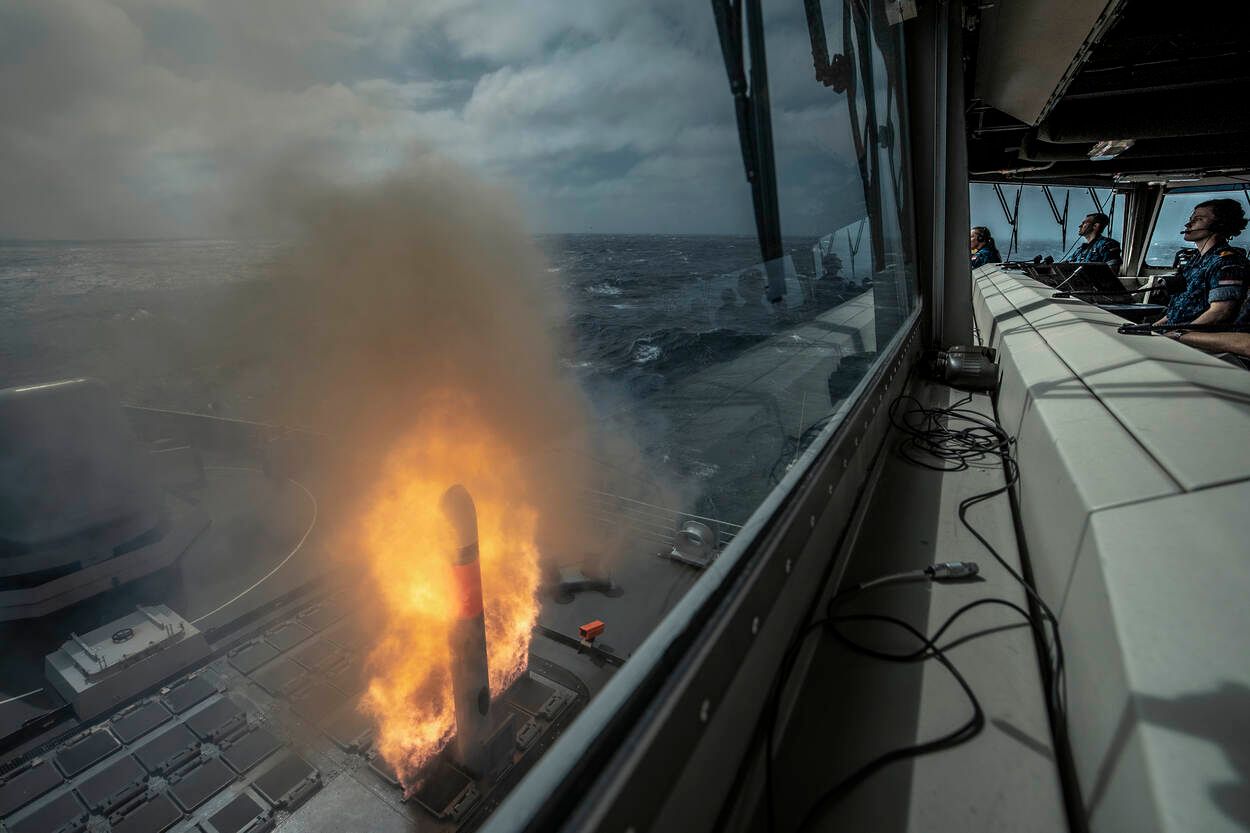Ukraine war latest: Third round of Ukraine-Russia peace talks set for July 23, Zelensky says

Key developments on July 21:
- Third round of Ukraine-Russia peace talks set for July 23, Zelensky says
- US, Germany agree to deliver 5 Patriot air defense systems to Ukraine
- Ukraine hit by yet another mass drone, missile attack, 1 killed, 9 injured in Kyiv
- UK sanctions 135 Russian oil tankers, 2 firms linked to shadow fleet
- US urges Europe to join potential secondary tariffs on Russian oil
The third round of direct talks between the Ukrainian and Russian delegations in Istanbul will take place on July 23, President Volodymyr Zelensky said in his evening address on July 21.
"Today I discussed with (National Security and Defense Council Secretary) Rustem Umerov the preparation of a (prisoner) exchange and another meeting in Turkey with the Russian side," the president said.
"Umerov reported that the meeting is scheduled for Wednesday. Tomorrow there will be more details."
The latest round of direct talks between Ukraine and Russia took place in Istanbul on June 2, following a previous meeting on May 16 after more than three years without negotiations.
Earlier in the day, Zelensky noted that the meeting would focus on three key issues: the return of prisoners of war, the return of abducted children, and preparations for a leaders' summit.
"The agenda from our side is clear," Zelensky wrote on X. "It is clear to all that truly effective talks can only take place at the level of national leaders."
Kremlin spokesperson Dmitry Peskov said on July 21 that Moscow supports holding the next round of talks, although he claimed that no final date had been agreed.
While Zelensky has expressed readiness for face-to-face talks, Russian President Vladimir Putin has repeatedly declined to participate in person, sending lower-level officials instead.
Peskov said there would be "no changes" to the Russian delegation, which continues to be led by Putin's aide, Vladimir Medinsky. Top Russian officials, including Foreign Minister Sergey Lavrov, will not take part.
On June 26, President Recep Tayyip Erdogan said Turkey is working to organize a Zelensky-Putin meeting with the possible participation of U.S. President Donald Trump.
The peace talks, characterized by great distance between the two sides' minimal demands, have been given new energy after Trump's warning on July 14 that he would impose "severe" tariffs on Russia unless it agrees to end the war within 50 days.
Peskov reiterated on July 20 that Moscow's war goals remain unchanged and are to be achieved "on the battlefield," reflecting an increasingly open admission that Russia has no intention to stop on the battlefield.
Ukraine has proposed a 30-day unconditional ceasefire in both rounds of talks — a position supported by the U.S. — but Russia has so far rejected the proposal.
On July 7, Ukraine's First Deputy Foreign Minister Sergiy Kyslytsya told the Kyiv Independent that Russia's approach at the Istanbul meetings amounts to ultimatums rather than genuine negotiations.
US, Germany agree to deliver 5 Patriot air defense systems to Ukraine
The U.S. and Germany have agreed to deliver five Patriot air defense systems to Ukraine, German Defense Minister Boris Pistorius said on July 21, according to European Pravda.
The announcement comes as Russia escalates its long-range strike campaign on Ukraine, including with ballistic missiles that only the advanced Patriot can shoot down.
Overnight on July 21, Russian forces launched a new mass air attack against Ukraine — including 426 Shahed-type drones and various missiles, including Kinzhal air-launched ballistic missiles as well as Kalibrs and Kh-101 cruise missiles.
Speaking during the 29th Ukraine Defense Contact Group meeting (better known as the Ramstein group after the U.S. base in Germany), Pistorius said he reached the agreement with U.S. Defense Secretary Pete Hegseth during a recent trip to Washington.
Coordination with partners on the systems' delivery will continue in the coming days, Pistorius added.
The U.S.-built Patriot systems are a vital part of Ukraine's layered air defense, capable of intercepting ballistic and cruise missiles and providing protection against large-scale strikes on cities.
The new commitment follows U.S. President Donald Trump's July 14 announcement of a NATO- and EU-backed initiative under which alliance members will purchase U.S.-made weapons systems for Ukraine.
Trump claimed on July 16 that Patriot shipments to Ukraine were already underway. Initially, the German defense ministry denied knowledge of any such transfers.
On July 14, a German government spokesperson said that talks were ongoing among allies to deliver more than three Patriot systems to Ukraine.
Washington has already sent three Patriot batteries to Ukraine, with Germany providing three more. An additional battery has come from a European coalition, though not all of the systems are currently operational due to routine maintenance rotations.
Ukraine hit by yet another mass drone, missile attack, 1 killed, 9 injured in Kyiv
President Volodymyr Zelensky on July 21 condemned yet another overnight mass Russian missile and drone strike on Ukraine that killed two and injured nine others as "an assault on humanity."
Ukraine's Air Force said Russia launched 450 drones and missiles during the attack, which lasted several hours, with Kyiv, the western city of Ivano-Frankivsk, and Kharkiv badly hit.
Explosions rocked Ukraine's capital, Kyiv Independent journalists on the ground reported at 2:16 a.m. local time, with multiple further explosions and the sound of drones lasting until after 5 a.m.
One person was killed as a result of the Russian attack on Kyiv, Tkachenko reported. Ukraine's State Emergency Service later said nine people had been injured. Zelensky said two people were killed across the country but did not specify where the second death occurred.
Smoke engulfed Kyiv's Lukianivska metro station as residents took shelter amid the Russian drone attack, local media reported, and a kindergarten in the Dniprovskyi district caught fire.
Russia has intensified strikes in recent weeks, targeting cities far from the front line with drone and missile attacks.
In the western city of Ivano-Frankivsk, air defenses were working, Mayor Ruslan Martsinkiv reported at 3:13 a.m.
"In one of the community's villages, windows have been broken," he said at 5:09 a.m. local time, adding that there are reports of injuries.
Russian strikes continued to target the western oblast, Martsinkiv reported at 6:05 a.m.
"This is the largest attack since the full-scale invasion," he said.
Infrastructure was damaged in three villages, and there are reports of injuries in one village, Martsinkiv reported. Four people, including a child, were injured, according to the State Emergency Service.
Poland scrambled fighter jets early on July 21 in response to a Russian missile strike on Ukraine, the country's Armed Forces Operational Command reported.
Polish and allied air forces activated jets, while air defense and radar systems were placed on high alert. The last similar incident occurred during a massive Russian attack on Ukraine on July 19.
UK sanctions 135 Russian oil tankers, 2 firms linked to shadow fleet
The United Kingdom imposed new sanctions on July 21 targeting 135 Russian oil tankers and two shipping companies linked to Russia's shadow fleet.
According to the U.K. government, the tankers have secretly transported $24 billion worth of oil since the start of 2024. One of the two companies now under sanctions is tied to Lukoil, one of Russia's largest oil producers.
"New sanctions will further dismantle (Russian President Vladimir) Putin's shadow fleet and drain Russia's war chest of its critical oil revenues," U.K. Foreign Secretary David Lammy said.
"As Putin continues to stall and delay on serious peace talks, we will not stand idly by."
London said it would continue leveraging its sanctions regime to increase pressure on the Kremlin while standing "side by side with Ukraine."
The move follows the U.K.'s July 18 decision to join an EU initiative to lower the price cap on Russian seaborne oil exports to $47.6 per barrel, down from the original $60 cap. That ceiling was designed to reduce Moscow's profit margin without triggering global supply disruptions.
Russia has continued to export oil by using a so-called shadow fleet of tankers that operate under opaque ownership, flags of convenience, and often without proper insurance, allowing them to sidestep Western enforcement mechanisms.
The British government said Western sanctions have already slashed Russia's oil and gas revenues by one-third since 2022, with further measures aimed at constraining Moscow's ability to fund its full-scale war against Ukraine.
US urges Europe to join potential secondary tariffs on Russian oil
The United States hopes European allies will join potential secondary tariffs on Russia, U.S. Treasury Secretary Scott Bessent told CNBC in an interview published on July 21.
"Russian oil is going to be subject to up to 100% secondary tariffs," Bessent said. "I urge our European allies, who have talked a big game, to follow us if we implement these secondary tariffs."
Bessent's remarks follow U.S. President Donald Trump's July 14 announcement that the U.S. will impose "severe" tariffs on Russia unless it agrees to end the war in Ukraine within 50 days.
"We call them secondary tariffs," Trump said during a joint press conference with NATO Secretary General Mark Rutte at the White House. "Tariffs that are about 100%."
Secondary tariffs are penalties targeting countries or companies that continue doing business with a sanctioned nation by charging extra for access to the U.S. market or financial system.
If a third country like China keeps buying Russian oil, exports to the U.S. could face a further 100% tariff, significantly raising prices for American consumers and squeezing Chinese exporters.
Trump, who had promised to broker a peace deal within 24 hours of taking office, has grown increasingly frustrated with what he described as Russia's delays in moving forward with peace talks.
The U.S. strategy seeks to pressure Moscow by curbing its oil income, which accounts for roughly one-third of federal revenue and remains a vital source of funding for its war effort.
Kremlin spokesperson Dmitry Peskov responded on July 15 by calling Trump's threat "serious," but said Moscow needs time to analyze Washington's message.
Note from the author:
Ukraine War Latest is put together by the Kyiv Independent news desk team, who keep you informed 24 hours a day, seven days a week. If you value our work and want to ensure we have the resources to continue, join the Kyiv Independent community.


















